Services
SERVICES
SOLUTIONS
TECHNOLOGIES
Industries
Insights
TRENDING TOPICS
INDUSTRY-RELATED TOPICS
OUR EXPERTS

August 5, 2025
Marketing teams can leverage logistics CRM to segment their audience based on shared attributes and interests, run targeted social media, SMS, or email campaigns, and facilitate promotional content generation and posting through AI-based automation, ultimately boosting lead generation.
Logistics CRM solutions typically feature extensive capabilities to help companies acquire, nurture, and convert leads. For instance, users can automate lead information capture from web forms, AI chatbots, and other touchpoints, rank and prioritize high-value leads via AI engines, and engage them with personalized communications.
With the help of a logistics CRM system, businesses can consolidate information on their customers, leads, and business partners, including their personal and company details, interaction history, and relevant documentation, for easier engagement and collaboration.
A logistics CRM platform enables organizations to effectively plan and monitor activities across the sales pipeline, interact with prospects via multiple integrated communication channels (IP telephony, email, etc.), and automate task assignment, quote generation, and other sales processes. This translates into superior sales team coordination and performance.
While most logistics businesses adopt dedicated tools to streamline supply chain management, industry-specific CRM software can still offer valuable capabilities to facilitate such operations. These include scheduling collections based on clients’ working hours, providing real-time shipment status updates, and monitoring inventory levels across warehouses to select the closest location for faster delivery.
Support teams rely on logistics CRM systems to automate freight claim routing, escalation, and other case management tasks or quickly access knowledge bases and relevant customer information for faster case resolution. Furthermore, CRM features such as chatbots and self-service portals enable 24/7 assistance, ensuring a better customer experience and improved retention.
Most logistics CRM tools offer analytics and reporting features to help businesses optimize their customer relationship management strategies, streamline operations based on data-driven insights, and facilitate knowledge sharing among stakeholders. These include, for instance, sentiment analysis, sales and revenue forecasting, real-time KPI tracking, and automated report generation.
Consider integrating your logistics CRM with other corporate systems to enable seamless data exchange between different business functions and create a synergistic technology environment. Common integration options include:
to harmonize CRM processes with other key business operations, including inventory management and warehousing, finance and accounting, and human resource management.
to share freight rates, carrier availability, or other relevant information with sales teams and fill in shipping orders with customer data from the CRM.
to trigger a pick-pack-ship request in the WMS when a new order is recorded in the CRM or send automated tracking notifications to the client via the CRM system once the order is shipped from the warehouse.
to segment leads and customers based on CRM data for targeted marketing and record leads collected via the marketing solution into your CRM, making their details available to your sales teams.
to automatically populate financial documents such as freight invoices with customer information from the CRM system and facilitate financial reporting based on sales and other CRM data.
As the market-leading CRM platform for the last decade, Salesforce offers a remarkable range of industry-agnostic features to empower marketing, sales, and service teams, along with more specialized capabilities for different sectors.
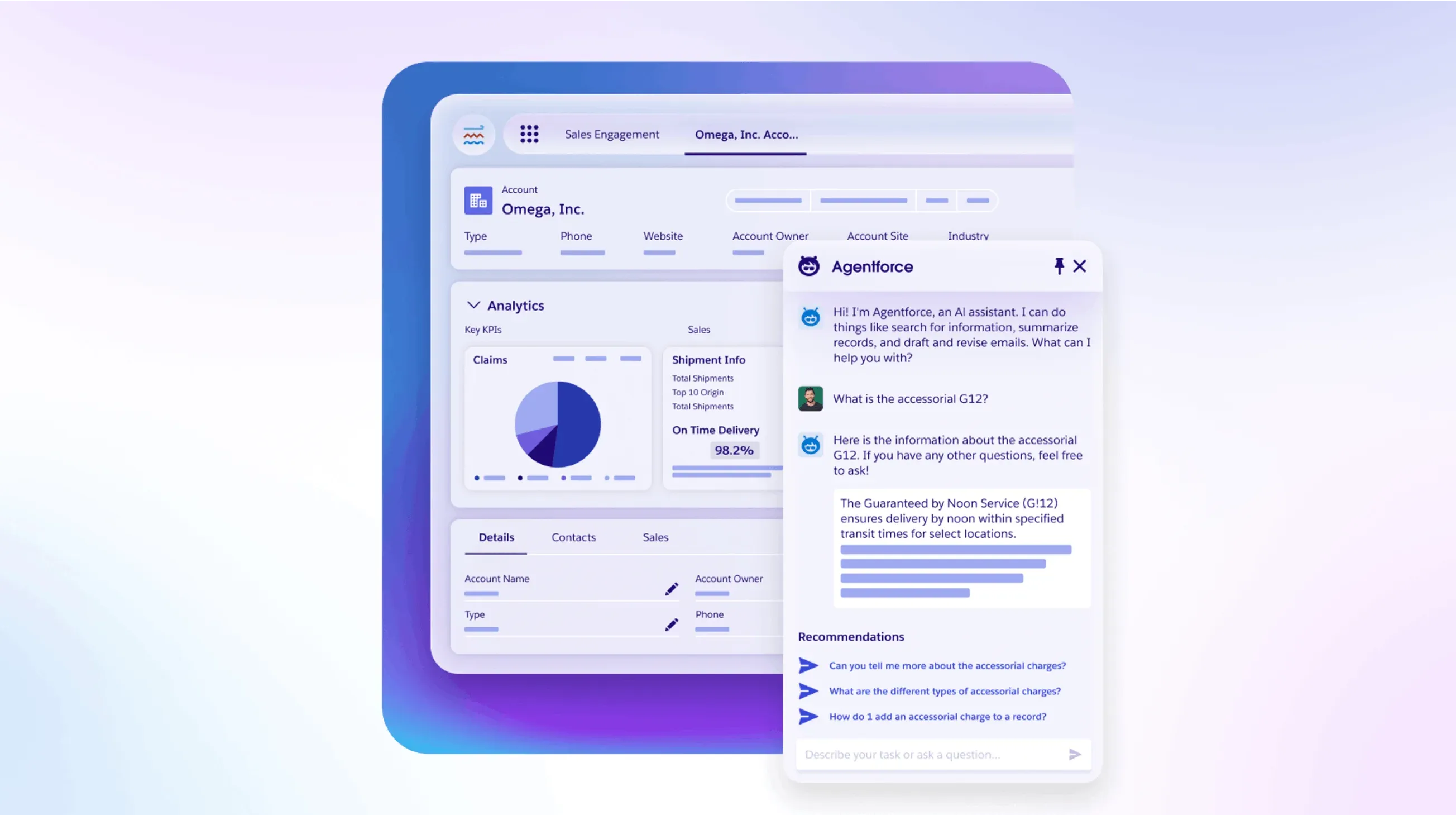
Image title: Salesforce Agentforce in action
Image source: Salesforce
Logistics companies adopting Dynamics 365 can access multiple CRM products for marketing, sales, and service management, along with additional ERP capabilities for supply chain management, finance and accounting, and HR.
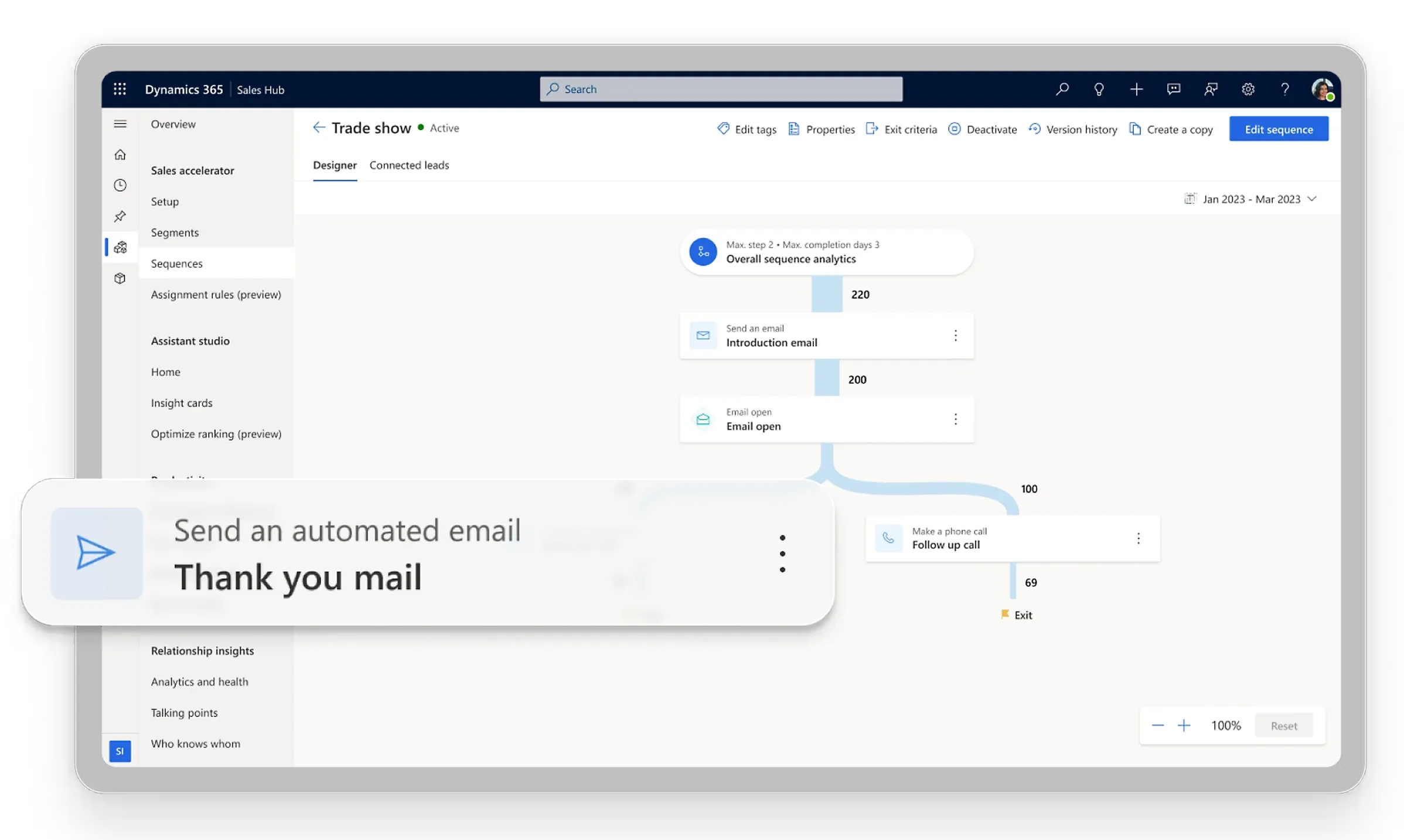
Image title: Sales action sequences in Dynamics 365
Image source: Microsoft
Odoo is a comprehensive suite comprising dozens of business apps, including a CRM solution and multiple supply chain management tools. Furthermore, adopters can choose between Odoo’s open-source option (Community) and licensed SaaS version.
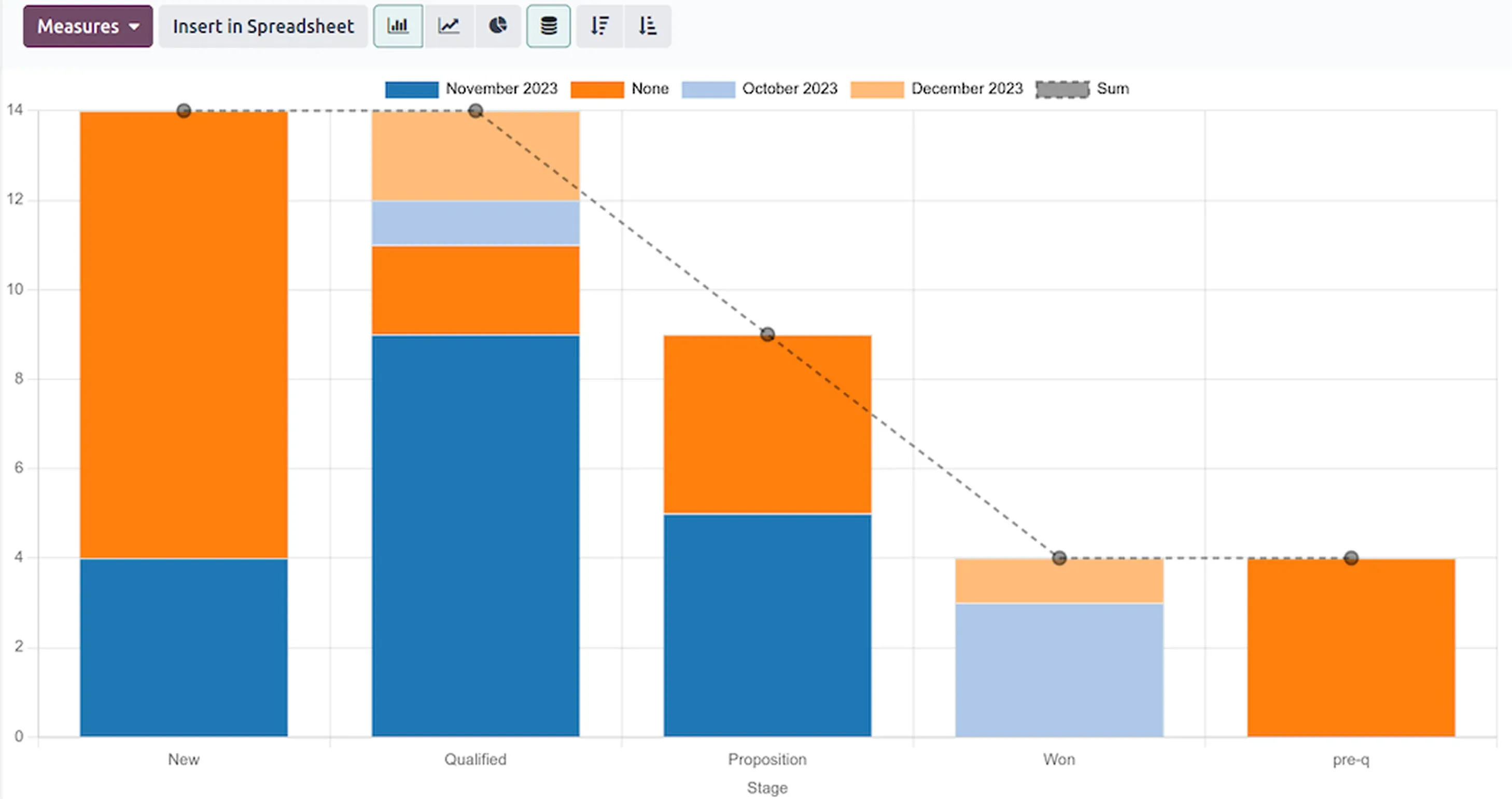
Image title: A leads analytics dashboard in Odoo
Image source: Odoo
Pipedrive is an intuitive sales CRM solution for logistics service providers requiring a strong focus on lead management and sales automation.
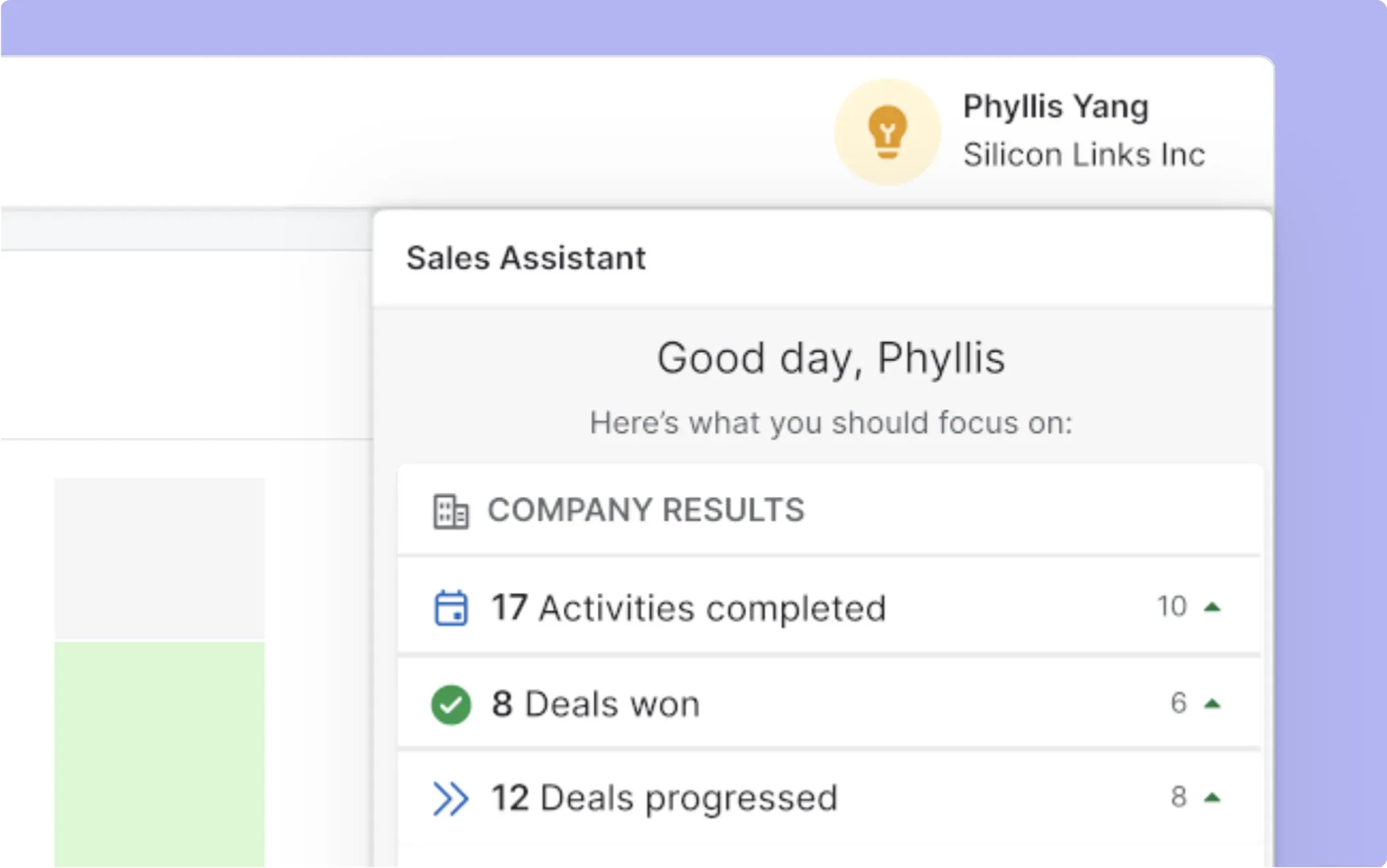
Image title: Pipedrive’s AI Sales Assistant
Image source: Pipedrive
HubSpot is a popular platform that includes multiple software products or “Hubs” for customer relationship management and recently added agentic AI capabilities.
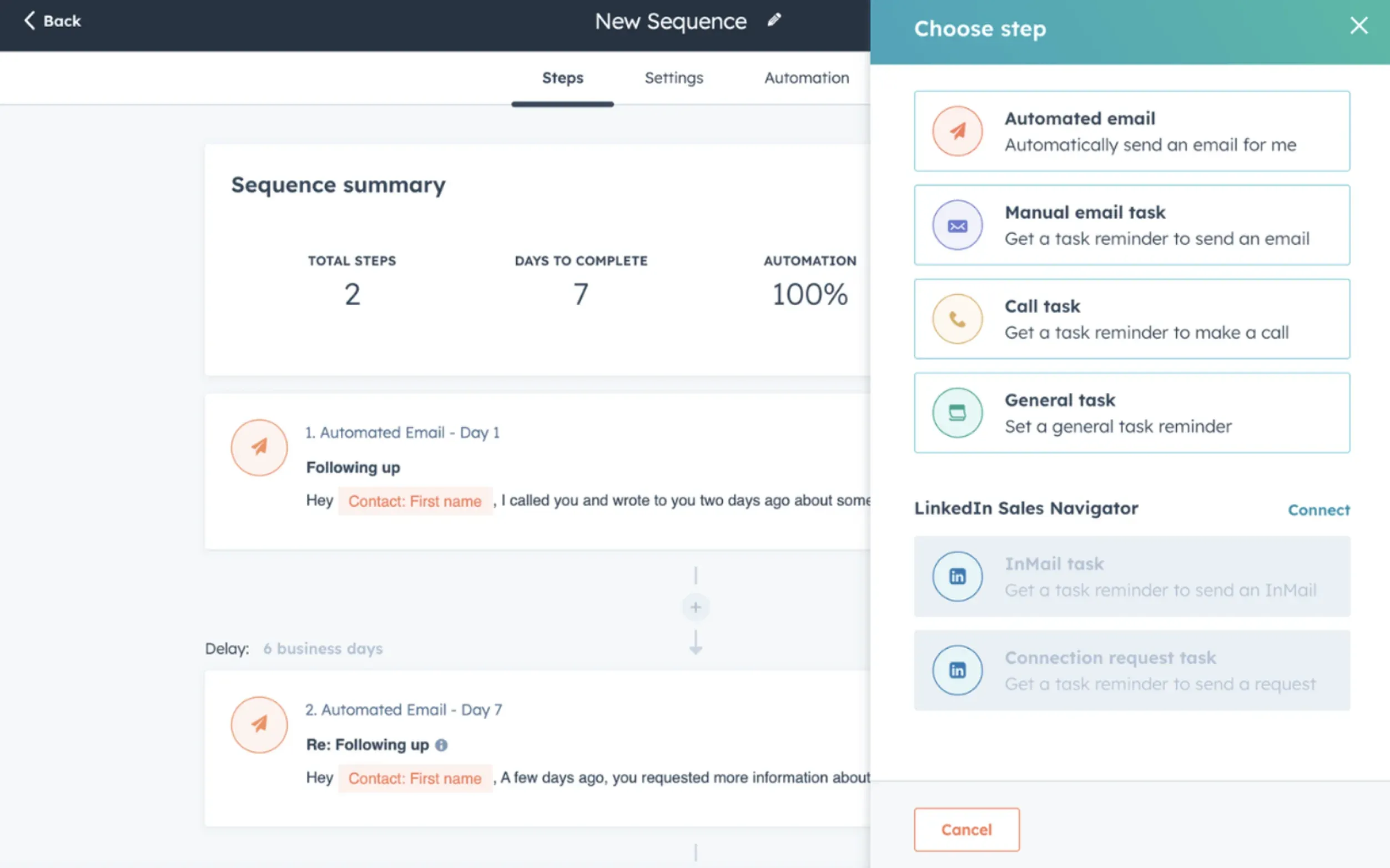
Image title: HubSpot’s tool to create automated sales workflows
Image source: HubSpot

Rely on targeted marketing, omnichannel customer engagement, and sales process automation to maximize lead generation and conversion and thus boost sales and revenues.
Deliver personalized customer experiences, including tailored offers and communications, to foster engagement and provide more effective customer support to maximize retention and lifetime value.
Consolidate data on clients and business processes into a unified tool to get a holistic view of customer needs, identify sales opportunities, and address inefficiencies in your logistics operations or other workflows.
Automate repetitive tasks, such as work allocation or invoicing, and optimize workloads via lead and opportunity prioritization to make your teams more productive and speed up sales cycles.
Facilitate task planning and foster data sharing across marketing, sales, and service teams via collaborative CRM functionality to improve cross-department coordination for consistent customer engagement and support.

Our consultants provide expert guidance at every stage of your CRM project, from business needs analysis and license optimization to user training and onboarding, to ensure a successful software launch.
We help you implement CRM solutions fully aligned with your customer relationship management needs, taking care of custom development or platform customization, software integration, data migration, and post-release support.
Logistics has never been an easy discipline. That said, its evolution over the past decade has further
exacerbated some of its most complex aspects, including ever-increasing freight volumes, recurring disruptions
across interconnected supply chains, and a demanding customer base that expects transparency, personalization,
and rapid issue resolution.
In this logistics landscape, CRM software isn’t just a nice-to-have tool, but an essential component
of any company’s digital toolkit to deliver both goods and great customer experiences. Consider relying on
Itransition’s team of experts to implement the right CRM solution for your business needs.

Service
Explore Itransition’s range of logistics software development services, along with top solutions, technologies, and implementation guidelines.

Service
Itransition provides CRM services to help you implement a tailored CRM solution or enhance an existing one, strengthen customer relationships, and drive sales.

Insights
Find out how machine learning is transforming logistics and supply chain, including its top use cases, benefits, technologies used, and implementation tips.

Insights
Learn how to increase the efficiency of your logistics operations, streamline deliveries, and cut costs with robotic process automation implementation.

Service
Itransition develops custom and platform-based CRM software solutions to help companies effectively attract, engage, and retain customers and drive sales.
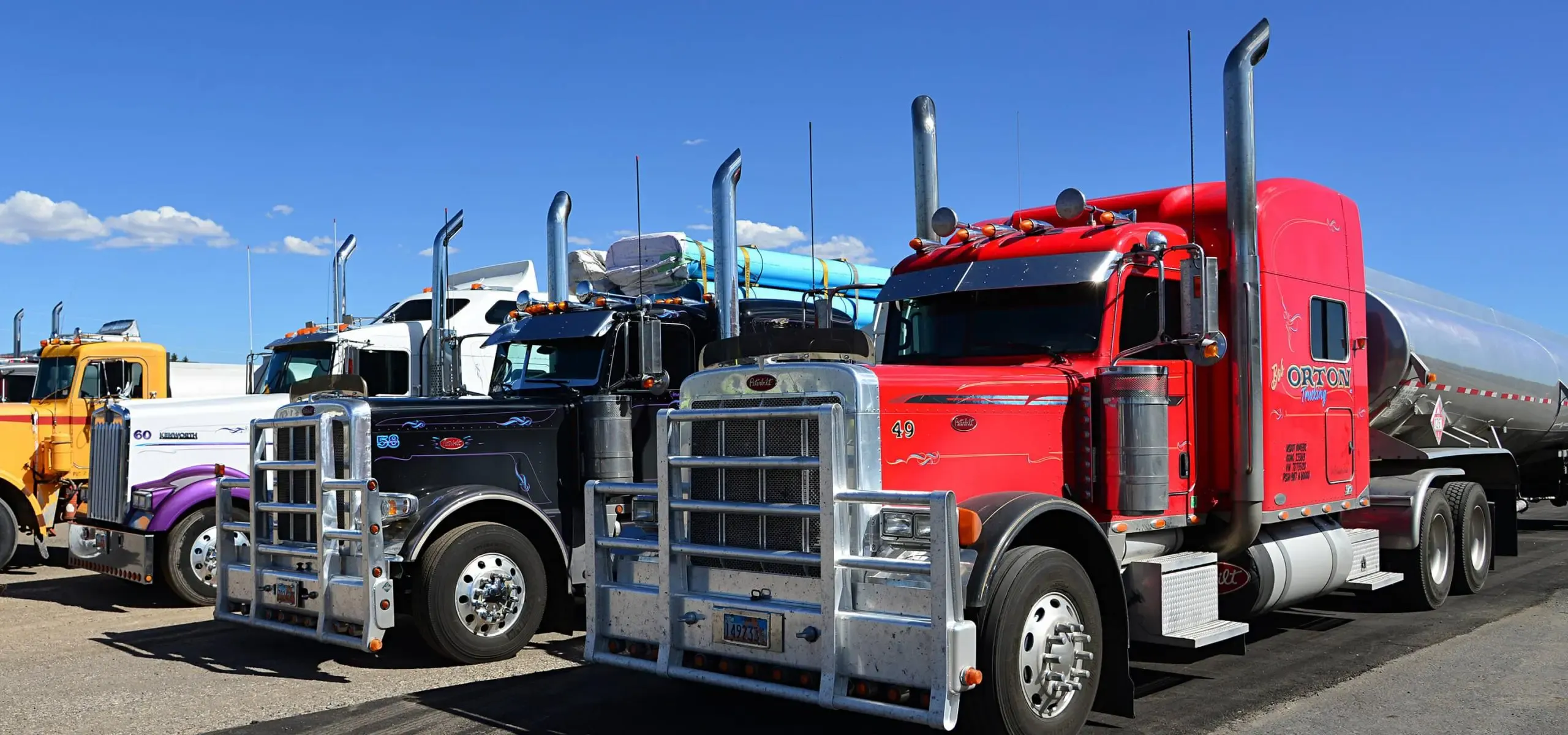
Case study
PayLoader automates the whole transportation process from an order placement to payment processing and client reviews management.